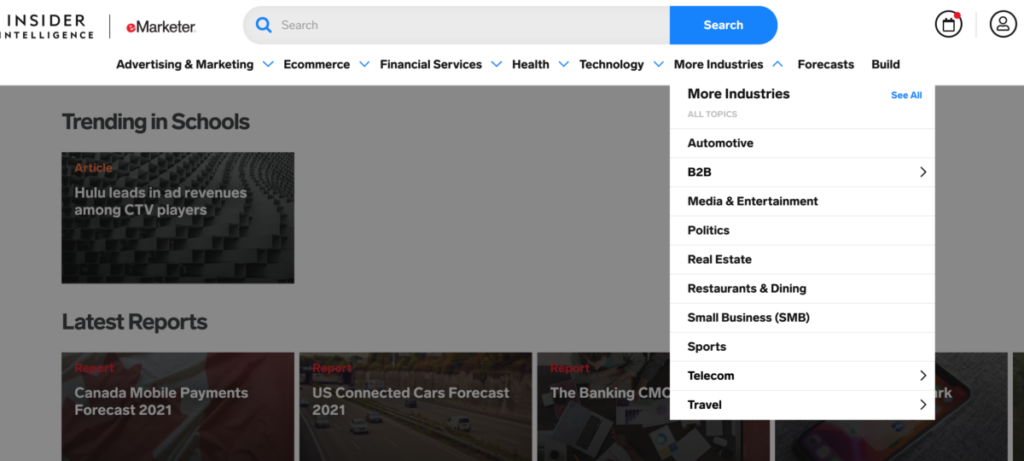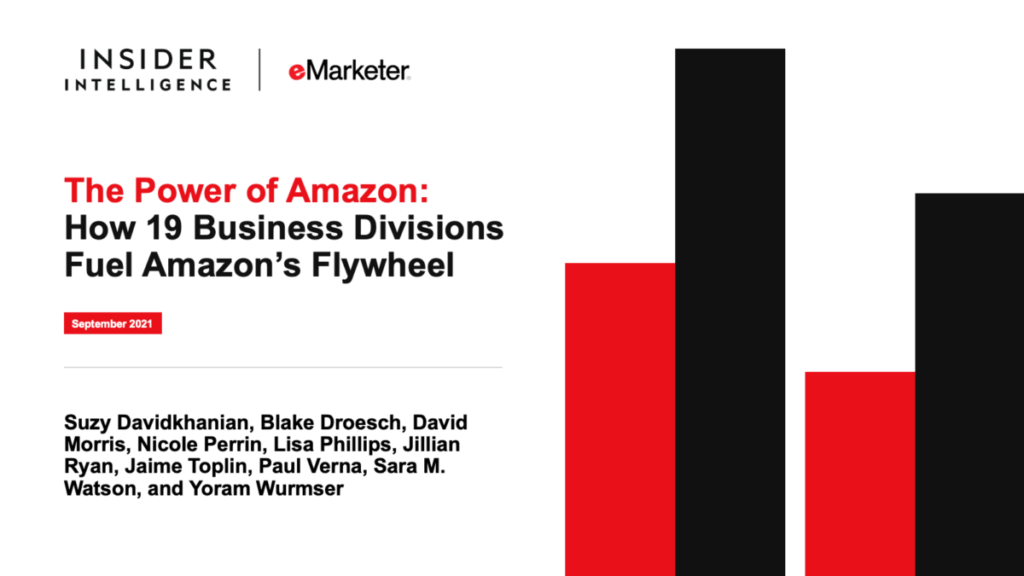The Emory community has access to a wealth of business research databases. This series highlights many of these great resources, including content and the best applications for classes and career prep.
What Will You Find?
eMarketer Pro publishes market research reports on digital consumerism, including marketing, advertising, ecommerce, social media, and more and is widely used by marketing professionals at companies around the world. You may also see eMarketer Pro research cited in articles from major news and business media outlets such as the New York Times, Wall Street Journal, and the Economist, emphasizing the credibility of their publications and data.
Use for Class Projects
If your research project involves issues related to consumer insights, B2B marketing, industry-specific marketing trends (such as automotive, consumer products, financial services, etc.), and reaching customers using mobile and internet channels, make sure you check out eMarketer Pro. The simple search is very effective in directing you to relevant reports and infographics, but you can also browse the content very easily by topic or industry.
A major benefit of eMarketer Pro is that you can easily capture or download charts and graphs and the data tables associated with them. Reports are downloadable as PDFs, and data sets can be exported to Excel, making it easy for you to integrate the data into your papers and presentations.
Use for Interview Prep
Are you looking forward to a career as a marketing professional? Use eMarketer Pro to prepare for your interviews and impress your potential employer with your knowledge of digital marketing trends, social media marketing, mobile and social commerce, and consumer digital habits. What’s more, knowing how to use eMarketer Pro is a great resume builder for aspiring marketing professionals.
Additional Business Resources
You can also use the Business Research Guide to locate additional business resources, locate tips for how to use them, and understand which are best for your specific research needs.



